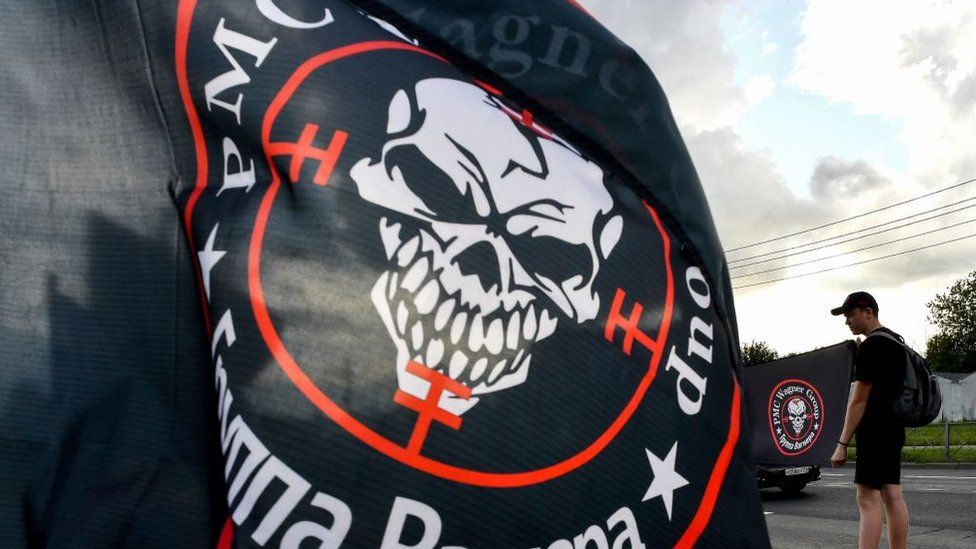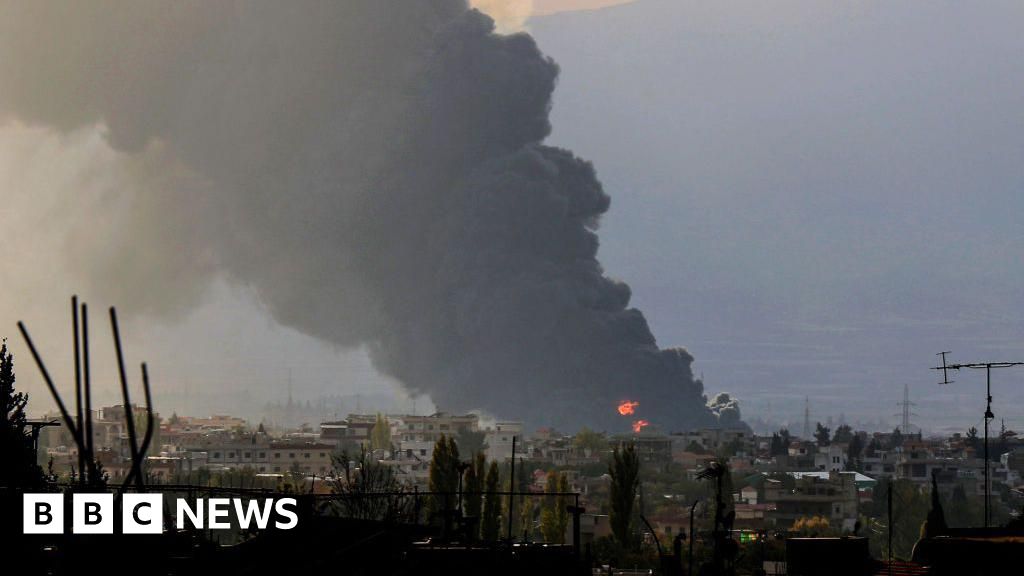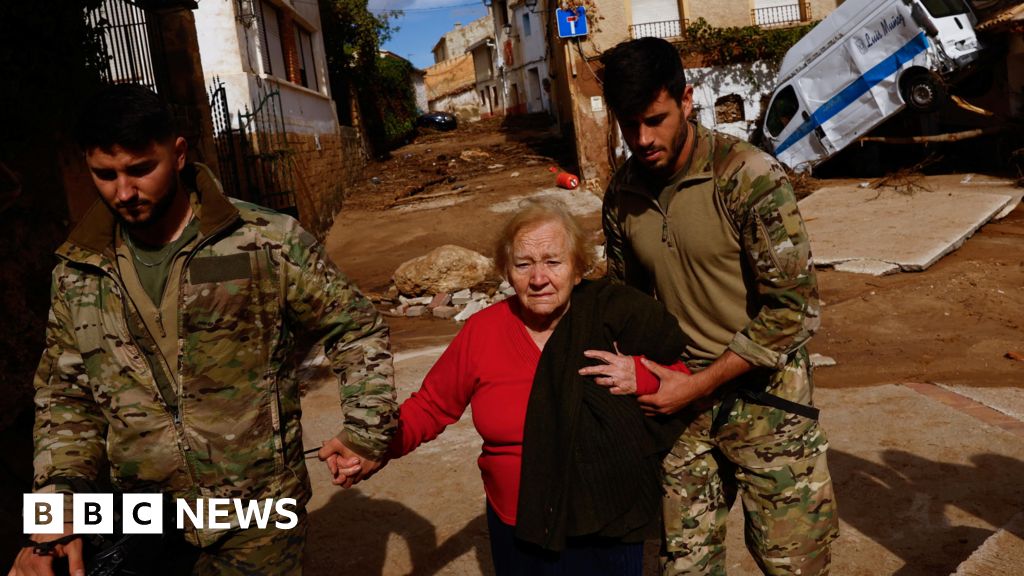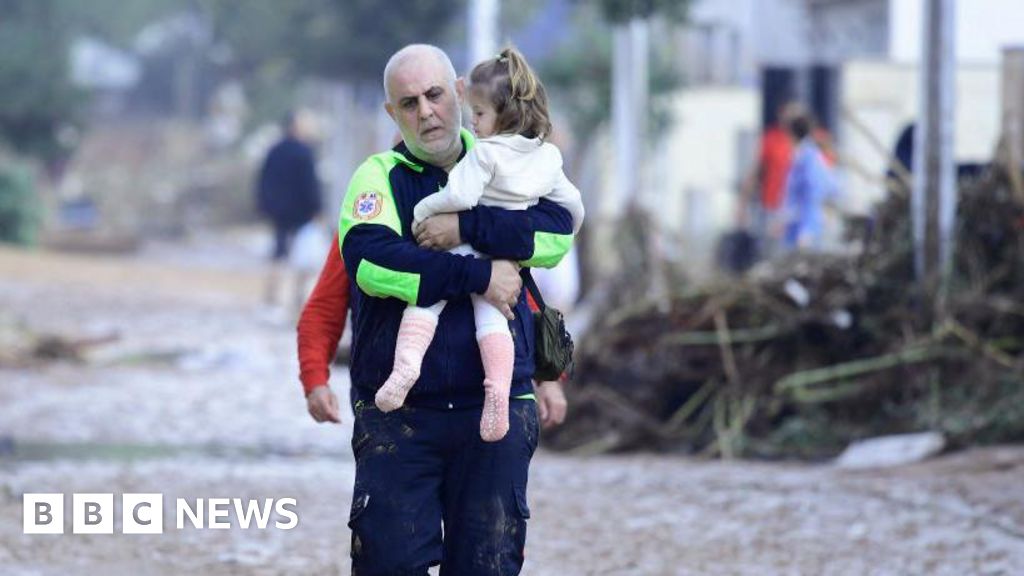ARTICLE AD BOX
 Image source, Getty Images
Image source, Getty Images
The UK has officially banned Russia's Wagner paramilitary group as a terrorist organisation, weeks after the death of its founder Yevgeny Prigozhin.
The order was approved on Friday, making it illegal to be a member of, or to support, Wagner.
Those found guilty of aiding the paramilitary could face steep fines and penalties of up to 14 years in prison.
Proposing the order last week, Home Secretary Suella Braverman called Wagner a "threat to global security".
"Wagner's continuing destabilising activities only continue to serve the Kremlin's political goals," Ms Braverman said.
"They are terrorists, plain and simple - and this proscription order makes that clear in UK law."
Under the order, it is a criminal offence to support the group. This includes arranging meetings to further its activities, expressing support for its aims and also displaying Wagner's flag or logo.
Those found guilty of supporting Wagner could be sentences to up to 14 years in prison, or face a fine.
Wagner will now be added to a list of 78 other proscribed organisations in the UK, including as Hamas and Boko Haram.
The Wager paramilitary group, founded in around 2014 by Yevgeny Prigozhin, quickly became a key tool of Russian state power under President Vladimir Putin.
The group has helped to support allies of Mr Putin in countries such as Syria, Libya, Mali and the Central African Republic.
Since the invasion of Ukraine, its fighters have been at the forefront of the conflict in the east of the country. It was responsible for some of Russia's rare victories in cities such as Soledar and Bakhmut.
But Wagner's future was thrown into uncertainty earlier this year when Prigozhin led a failed mutiny against Russia's military leaders. He later died in a suspicious plane crash along with other Wagner figures on 23 August and was buried in St Petersburg.
On Friday, Kremlin spokesperson Dmitry Peskov denied that an investigation into the causes of the crash had been too slow, claiming that it was "not a simple investigation, not a simple incident".
"The investigation is ongoing, that is why giving some kind of commentary would be absolutely premature," he told reporters.
Senior MPs in the UK have been calling on the government to proscribe Wagner for months.
Earlier this year parliament's foreign affairs select committee produced a report condemning the government's "remarkably complacent" approach to the group and criticised its "dismal lack of understanding of Wagner's hold beyond Europe, in particular their grip on African states".
But the new ban could have come too late to have a real impact.
On Thursday, Alicia Kearns - chair of the UK parliament's foreign affairs select committee - urged the government to take "a more strategic approach towards [private military companies] operating across all conflict zones".
And the UK Labour Party's shadow Foreign Secretary David Lammy accused the government of being too slow to act and of "failing to keep up with changing threats to our national security".
Russia is said to have established dozens of new private military companies, all of which have varying loyalties.
Anton Mardasov, a non-resident scholar at the Middle East Institute's Syria Program, told the BBC last month that one group, PMC Redut, was already seeking to rival Wagner in Syria.

 1 year ago
45
1 year ago
45








 English (US)
English (US)